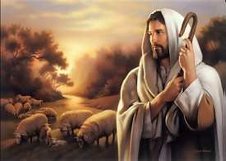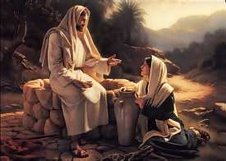"God presides in the great assembly." Psalm 82:1
The great assembly is in the great Hall of Justice (1Kings 7:7) in heaven.
"In The Lost Symbol, the front and center theology is that of Apotheosis--of humans becoming gods." (Exaltation and The Lost Symbol, Scott Holley, September 21, 2009, http:timesandseasons.org/mormonreview/wordpress/?p=107#more-107)
The 'essay' titled "Exaltation and The Lost Symbol," (Dan Brown, The Lost Symbol, New York: Doubleday Books, 2009), points to the conclusion that one of the subjects within this book supports the Mormon theology that Mormons will become gods. The essay uses Psalm 82 from the Bible as support for their (Mormons) exaltation into the eternities as a "god."
"God presides in the great assembly; he gives judgment among the "gods". How long will you defend the unjust and show partiality to the wicked? Defend the cause of the weak and fatherless; maintain the rights of the poor and oppressed. Rescue the weak and needy; deliver them from the hand of the wicked. "They know nothing, they understand nothing. They walk about in darkness; all the foundations of the earth are shaken. "I said, 'You are "gods"; you are all sons of the Most High. But you will die like mere men; you will fall like every other ruler." Rise up, O God, judge the earth, for all the nations are your inheritance." (Psalm 82)
"If The Da Vinci Code highlighted one key element of Mormon theological distinction from Evangelical Christianity with the origin of Biblical scripture, then The Lost Symbol masterfully articulates the second-exaltation and man's divine potential." (Ibid, same essay)
"The psalm was understood in rabbinic circles as an attack on unjust judges who, though they have been given the title "gods" because of their quasi-divine function of exercising judgment, are just as mortal as other men." (NET Bible.org)
"PS 82 A word of judgment on unjust rulers and judges. The Levitical author of this psalm evokes a vision of God presiding over his heavenly court-analogous to the experiences of the prophets (see 1Ki 22:19-22; Isa 6:1-7; Jer 23 :18, 22; see also Job 15:8)." (The Holy Bible, Footnotes on psalm 82)
God is the King and Judge over all, especially over all of the rulers and judges on this earth. The "gods" are earthy humans who have earthy power; those who rule and judge while here on this earth. For those humans who defend the unjust, show partiality to the wicked, utterly devoid of true understanding of moral issues or of the moral order of God's rule sustains, God will "judge" them. Within this psalm, "gods" is used as a term that applies to types of authorities. "God, Most High, and O God," is used to describe the "Most High God" or our Father who is in the "great assembly."
"This offhand assertion is especially interesting given the ultimate message of the book-that not only are we gods, but we are able to access our divinity through shared spiritual experiences, and that truth is often found in such "wide acceptances". (Ibid)
In psalm 82 the message is clear that the God of the Most High is the only God who will judge all in the end. All other gods are not significant in stature, only to do His work on earth. If that work is not according to His will, then the "gods" will have very harsh judgment by by "GOD". This psalm is not about becoming a god, the Mormons are wrong.
The Lost Symbol of Mormonism? NO.....
Friday, May 7, 2010











0 comments:
Post a Comment